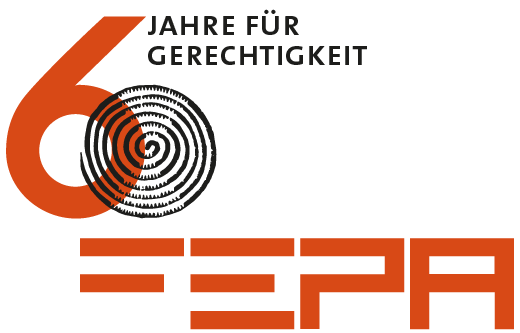GWEN – Girls and Women Empowerment Network
GWEN’s family-centred approach to gender justice
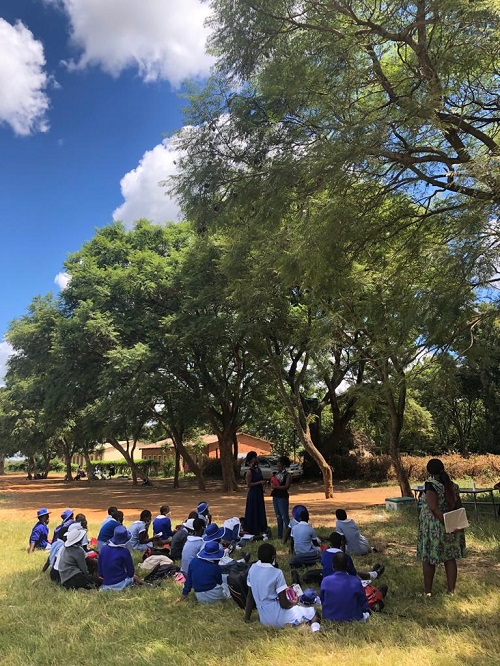
GWEN is an innovative community-based organisation led by a young inspiring woman and mother. In the project with fepa, the family is at the centre. Unfair treatment and discrimination of girls and young women is fixed in most families. When girls and young women challenge such disadvantages and find support and allies within and outside their own families, there is powerful leverage for improvement.
Specifically, GWEN works with girls and young women and strengthens their knowledge, self-confidence, solidarity and also their economic position. At the same time, it addresses family issues in communities, highlighting the importance and opportunities when and how girls can be empowered.
Thanks to our work, primarily girls and young women as well as other members of the communities in Seke and Chitungwiza are given the opportunity to create more equitable family relationships.
GWEN uses various entry points for this purpose: 2022 these are mainly meetings with girls, where education and livelihood issues are addressed and health and menstruation education can also take place; as well as public film screenings with discussions on family structures, girls’ and women’s rights, where important dignitaries and committed men also speak out.
GWEN has an activist approach: wherever possible, participants take action. In order to make this situational and community-integrated work possible, fepa hardly sets any guidelines, for example on the number of individual activities. However, we continuously evaluate the implemented activities together with GWEN with regard to their effectiveness and efficiency. In this way, the project creates new insights and confirms methods of how people themselves can contribute to more justice in their families and communities.
Our committment, our engagement
GWEN and fepa work together to
- achieve a gender equitable society where girls and young women feel comfortable and free from sexualised violence
- facilitate a ‘home-grown’ change in family structures so that families promote, rather than hinder, access to family rights for all members
- enable all family members to realise their potential and contribute meaningfully to development and well-being
The family-centred approach in detail
Why?
- structural roots of inequality in patriarchal families
- gender myths can be deconstructed, healing can be achieved
- “home-grown” solutions to problems in the home
- communities in charge
Toolbox
- community cinema
- community and school visits on menstrual hygiene, including distribution of sanitary pads
- exchanges with community leaders and stakeholders
- financial support for girls’ school visits
- workshops on detergent production
- community dialogues on drug abuse
- mother-daughter dialogues
- GWEN TRUST FRIDAY FACTS podcast
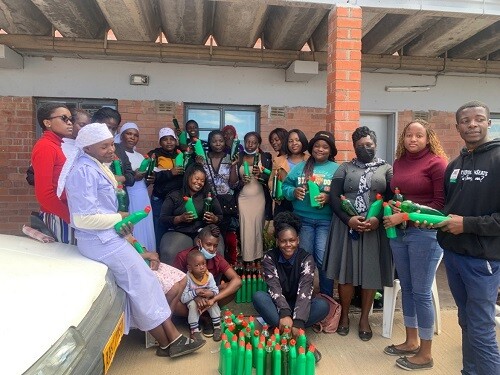
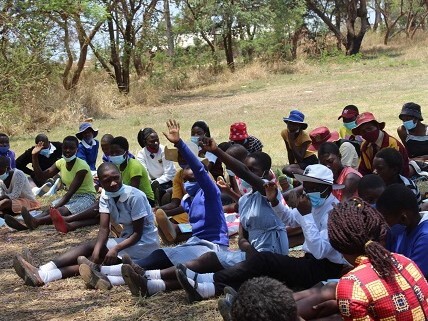
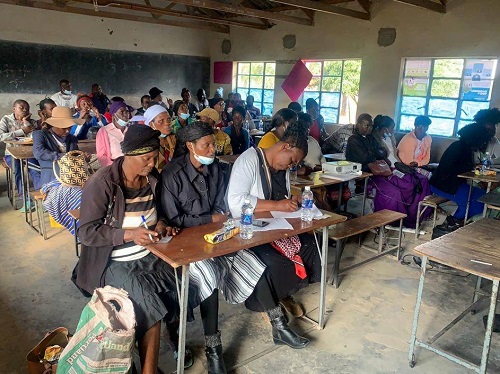
GWEN
GWEN works primarily in Chitungwiza and the rural foothills of Harare in Seke District to promote gender equality and for girls and young women. Traditional role models are widespread in the semi-rural communities. GWEN’s activists, who themselves come from these communities, work to change the way individuals, families and communities think. GWEN specialises in protecting the rights of vulnerable girls and women and how to promote them so that they claim their rights themselves. GWEN is very committed and has developed an innovative toolbox with activities and methods that are practical for working in communities.
GWEN’s director: Kumbirai Kahiya
Kumbirai Kahiya, founder and director of GWEN, grew up in a patriarchal family together with her twin brother. To conform to prevailing expectations, she had to behave, eat, speak and dress in certain ways. As a young football fanatic (and still a big Manchester United fan), she could not understand why she was not allowed to wear shorts to play like her brother. The decision was easily made: she went to work and bought her own football shorts with the money she earned – her own possession, which she wore with self-determination.
The experience of many women in Zimbabwe of not having access to resources was also hers. Her brother owned the land. By contributing financially to the family’s income, she also demanded the right to have a say and a say. But selling tomatoes on the street day in and day out while waiting for a man to propose marriage was not an option for her. She looked for ways to transform this prefabricated path. Not only for herself, but for all women in her community. Women need a place “where girls can just be girls”, says Kumbie. For which safe spaces – like Kumbie’s house was in GWEN’s informal beginnings – are of central importance. This is how GWEN came into being. Today, not only the offices of the organisation itself, but also the activities they carry out in the communities serve as such safe spaces.
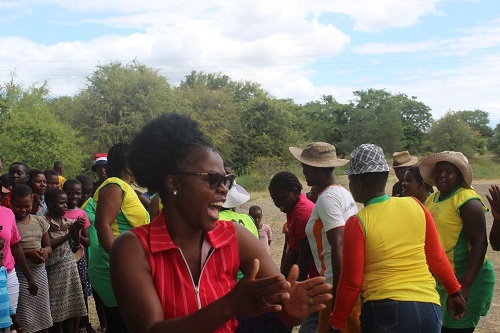
FCGEA is a concept that leaves no one behind and ensures that everyone is on board when it comes to promoting the rights of girls and young women, from the nuclear family to the larger community. – Kumbirai Kahiya, Director GWEN

| fepa partner organisation | GWEN, Girls and Women Empowerment Network |
| Location | Seke, Chitungwiza |
| Target group | Girls and young women, families and communities |
| fepa contribution 2021 | CHF 5’000 |
| fepa contribution 2022 | CHF 16’500 |
| fepa contribution 2023-25 | CHF 50’000 |
Currently
Check out our news page for the latest on this partnership.
With your donations for this project…
… you support an innovative grass root organisation that is campaigning for girls and young women.
